Necessary Preparations to Conduct Bihar Assembly Polls on Time Underway: Chief Election Commissioner

views
Chief Election Commissioner of India, Sunil Arora said that necessary preparations to conduct the Bihar Assembly elections in time are underway. In an exclusive interview with News18 India's Niraj Kumar, the CEC spoke about a range of issues, including measures being taken by the ECI ahead of the Bihar Assembly polls, the Commission's position on virtual rallies and the decision to reduce the age for the postal ballot.
Edited excerpts:
Niraj Kumar: With Covid-19 cases increasing by the day in Bihar, will the Assembly elections in the state be held as per schedule or is there a possibility of it getting delayed? If the Assembly elections will be held on time, then what measures will be in place?
CEC: Necessary preparations to conduct the Bihar Assembly elections on time, are underway at Election Commission of India, the state and district level. During the pandemic, all instructions for electoral processes would be suitably modified to ensure requisite arrangements of social distancing, sanitisation, disinfection and masks/gloves etc.
In the recently held Rajya Sabha elections, our teams managed to conduct the process quite successfully - even making arrangements, where required, for Covid-19 positive electors. It is fully realised in the Commission that the logistics of modifications thus required for Vidhan Sabha Elections would be formidable. Hence the preparations for suitable arrangements, without compromising on the quality, are being looked into.
Commission, on its part, will ensure that Covid-19 related Standard Operating Procedures are followed at all stages. All stakeholders including Political parties during their campaigning will have to collectively ensure that the relevant safety guidelines issued by the National Disaster Management Authority and public health authorities are followed in letter and spirit. All Advisories and Guidelines issued by the National Disaster Management Authority (NDMA), under the Disaster Management Act, which if in force during the period of the election process, shall be adhered to.
Our field functionaries need to account for all related instructions of managing the issues of Covid-19 at each stage of the electoral process. All officials on election duty are being duly sensitised about Covid-19 related precautions. Training and capacity-building of electoral machinery is already underway.
All ECI guidelines pertaining to electoral machinery, voters, political parties, candidates and other stakeholders are being tweaked. A reassessment of procedures at various stages of the election is being worked out by a team of officials in the Commission.
The SVEEP (Systematic Voter Education and Electoral Participation) strategy is being suitably modified. We shall step up the use of digital technologies in voter awareness, outreach and training. The Commission will make greater use of digital and media platforms, including bulk SMS, social media, television advertising, FM and Community radio, NVSP (National Voter Service Portal) and the Voter Helpline App. Voters Guide will be updated to reflect the Covid-19 imperatives.
Keeping these in view, Commission has initiated a number of measures, such as:
- The number of electors per polling station (PS) will be restricted to a maximum of one thousand (as opposed to the current limit of 1500). Thus, auxiliary polling stations would be created - for instance, 33,797 additional PSs are being planned for Bihar. All related requirements of augmented security forces, polling equipment, machinery and polling staff for duty will be arranged for.
- CEO Bihar has already assessed and identified 33, 797 additional polling stations as per the revised norms. Related requirement of additional polling personnel (approx.1.8 lakhs), sector officers, vehicles etc. has been worked out.
- CEO Bihar has also been directed to launch dedicated campaign to enroll left-out citizens, who are otherwise eligible to become electors, in the electoral roll. This will help those eligible migrants, who would have returned in the State and are not registered as electors.
CEO Bihar has been provided an additional number of EVMs including VVPATs. At present, the work of FLC is continuing in all the districts, in the presence of representatives of political parties, following due safety measures prescribed under COVID-19 guidelines.
- State has mapped 6,68,547 PwD electors as part of our focus on accessible elections. CEO has been instructed to continue this effort.
- The use of postal ballots for senior citizens (now included from age of 65 years plus), Persons with disability as also Covid-19 positive electors who could be on home or institutional quarantine, will help us to ensure that the vulnerable sections are not exposed to undue risk during electoral participation.
Niraj Kumar: Will the Bihar elections be held in several phases as per usual or will there will be one or two phases? Has any meeting been scheduled with the Home Ministry regarding the same?
CEC: Election schedule will be worked out keeping in view all relevant logistics, weather, school calendar, security and pandemic status concerns with all related law and order, health authorities, national, state and district level agencies. Details will be announced in due course of time when necessitated.
As per well laid out regime of ECI Election Planning process, meetings with concerned agencies/Ministries are already underway.
Niraj Kumar: What prompted ECI to change its stand on false affidavit cases?
CEC: On 19th June 2013, DG (Expenditure), ECI and CIT (Inv), CBDT decided on parameters and ways for verification of affidavits and it was decided to take up following categories of cases for verification:
I. Specific cases received from the ECI.
II. Cases witnessing phenomenal growth when the current affidavit is compared to that
filed during the previous election, if any.
III. Cases of winning Candidates and the veracity of the affidavits compared to the returns of income, if any, filed by them.
IV. Instances where there was no PAN but movable/immovable asset disclosed were in excess of Rs 5 crore.
V. Cases where addition of new immovable assets above a threshold say Rs. 2 crore vis-à-vis last affidavit, if any, was witnessed.
On April 26, 2014, Commission, keeping various factors in view and the observations of various High Courts conveyed to all the CEOs that in such cases anybody, who has specific complaint, may be advised to approach the competent Court.
Supreme Court in Resurgence India vs Election Commission of India (2014) 14 SCC 189, (the “Resurgence India Case”) applied the aforesaid conception of the fundamental right to be informed and its crucial role in preserving a healthy democracy. The court, in the Resurgence India Case, was faced with the question whether a candidate may leave blank any of the particulars required in Form 26. The Court answered the said question in the negative by holding that:
“22. Let us now test whether the filling of affidavit stating that the information given in the affidavit is correct but leaving the contents blank would fulfil the objective behind filing the same. The reply to this question is a clear denial. The ultimate purpose of filing of affidavit along with the nomination paper is to effectuate the fundamental right of the citizen under Article 19(1)(a) of the Constitution o India. The citizens are required to have the necessary information at the time of filing of the nomination paper in order to make a choice of their voting.”
This approach is akin to the directions issued by the Supreme Court in Rambabu Singh Thakur vs Sunil Arora 2020 SCC Online SC 178. The Court in this case required political parties to widely publicise the criminal antecedents of a candidate and the party’s justification in choosing such a person within a specified time frame. This direction was made with a view to ensure that voters are able to effectively make an informed choice at the elections.
Accordingly, Commission has reviewed this position on June 16, 2020 and decided that, in pursuit of a level-playing field, it will take cognisance of complaints, which indicate serious omission on the part of the candidate, and refer such matters to the relevant investigating authorities on a case-to-case basis.
Niraj Kumar: Was the decision to reduce the age for the postal ballot facility from 80 to 65 years taken keeping in mind the Bihar elections and coronavirus crisis? Is there any other factor?
CEC: Since March 24, 2020, in view of COVID-19 pandemic, lockdown guidelines were issued in the country. Under Covid-19 guidelines, National Executive Committee, under the Disaster Management Act, 2005 has been issuing various guidelines from time to time. On 17 May, 2020, in its measures, it laid down guideline, inter-alia, including, “Protection for vulnerable persons, vulnerable persons, i.e., persons above 65 years of age, persons with co-morbidities, pregnant women, and children below the age of 10 years, shall stay at home, except for meeting essential requirements and for health purposes.”
Commission considered these extraordinary situations and decided to recommend the extension of postal ballot facilities to two identifiable categories: (a) electors above 65 years of age; and (b) electors with Covid-19 positive/suspect, who are under quarantine (Home/Institutional) to avoid their presence in the polling stations and yet not to deprive them of their voting rights.
Statutory framework prescribed under Section 60(c) of the Representation of the People Act, 1951, specifies about it: “any person belonging to a class of persons notified by the Election Commission in consultation with the Government to give his vote by postal ballot and not in any other manner, at an election in a constituency where a poll is taken subject to the fulfilment of such requirements as may be specified in those rules”
Accordingly, earlier Commission recommended for three categories: (a) 80 years and above; (b) PwD electors; and (c) electors employed in essential services for extension of postal ballot facilities, which were notified on 22.10.2019.
Commission, as a matter of precaution, piloted the postal ballot facilities to senior citizen and PwD electors in seven ACs of Jharkhand in its General Election in 2019.
Details of this new mechanism were duly shared by the Chief Electoral Officer and the concerned District Election Officers with all the political parties and candidates concerned. 680 senior citizens and 1338 PwD electors used this facility. Subsequently, in the NCT of Delhi Legislative Assembly Election in February 2020, this facility was extended in all 70 ACs. 2257 senior citizen, 429 PwD, and 19 electors of essential service availed this facility. Commission did not receive any concern on this from any stakeholder including political parties.
8. Opposition parties have raised questions on virtual rallies. Does the EC have any comment on the issue?
CEC: ECI has already laid down mechanisms such as the Model Code of Conduct for monitoring election campaigning. Digital platforms are open for use to all. Every candidate has to provide the details of his/her social media accounts at the time of filing his/her nomination.
It would be recalled that Commission in sustained consultations with intermediaries (Social Media Platforms) and their association (IAMA) had evolved and successfully executed “Voluntary Code of Ethics” for social media since 2019 General Elections. This is being further strengthened at State and ECI level.
Necessary advisories will be issued to Political Parties to help in handling the digital environment smoothly.
As far as public gathering at rallies is concerned, Covid-19 guidelines already prescribe specific norms of social distancing, etc. in the interest of public health safety which cannot be violated as it would be an offence under the National Disaster Management Act 2005. In this scenario, political parties need to adhere to these guidelines.










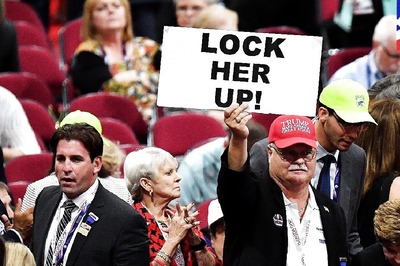


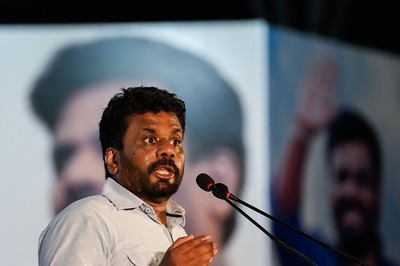
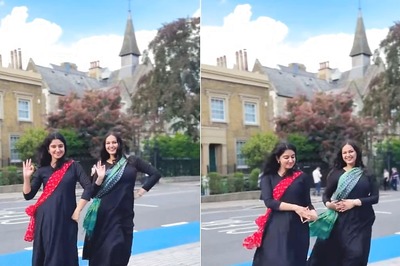
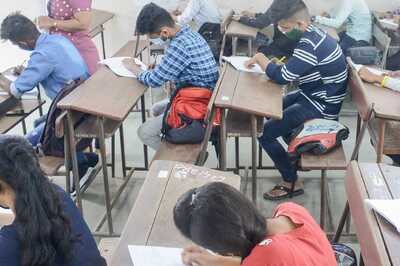


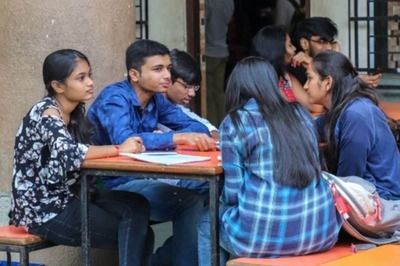
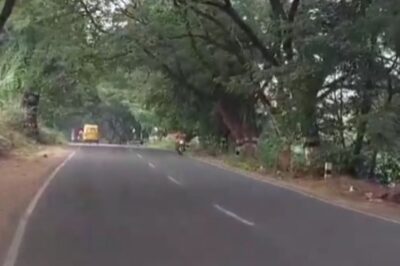
Comments
0 comment